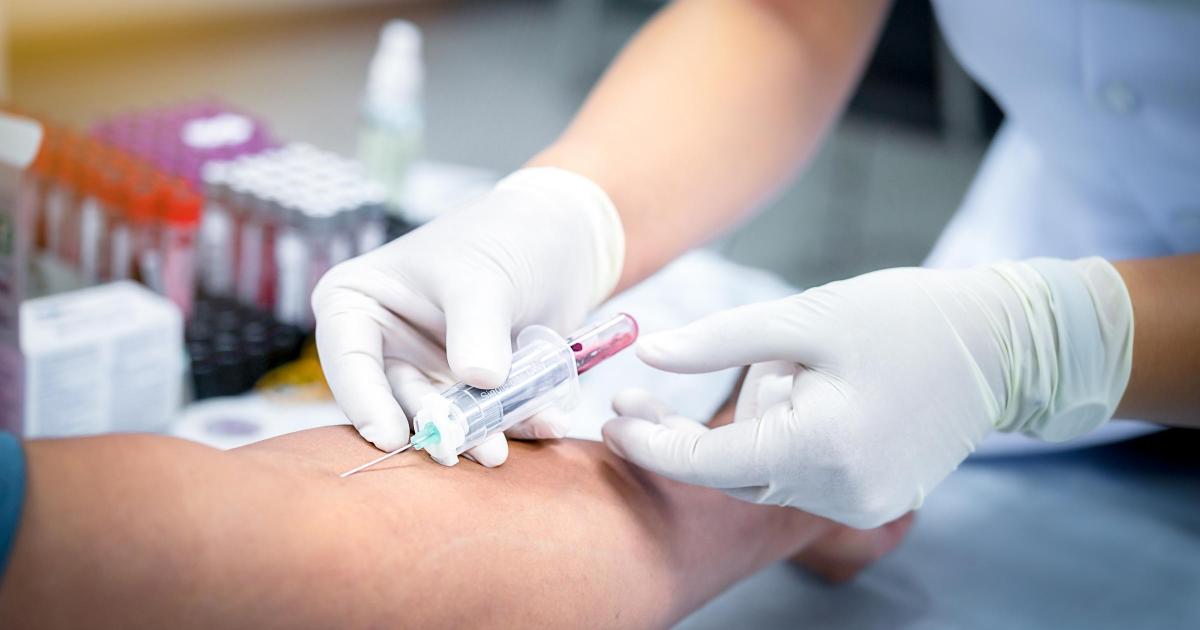This “precision-matched” blood will be collected and frozen so it can be used to help other people with the same type of blood.
It will also be available should the donors be in a situation where they themselves need a blood transfusion.
NHS on the lookout for donors with rare blood types as tens of thousands tested
It is hoped this will create a large supply of ‘precision-matched’ blood (Image: PA) The new drive to find “precision-matched” blood donors aims to help individuals who are at risk of adverse reactions to blood transfusions.
NHS Blood and Transplant (NHSBT) said that blood matching is “vital” due to the complexity of blood groups, with there being 362 known to professionals.
So far, scientists have DNA-tested the blood types of 77,000 donors as part of a research project.
This is the first time that blood types have been DNA tested in the UK at scale, the NHSBT said.
Dozens of rare blood donors have been identified during the process, and it is hoped the number will continue to rise.
This means that blood from these donors can be used as a “personalised, precision-matched transfusion” for those in need.
This can help avoid severe transfusion reactions – where the body sees the transfused blood as “foreign” and rejects it.
People who are particularly at risk of these reactions are those who regularly receive blood donations, including those with sickle cell disorder and thalassaemia.
Experts hailed the project as the “first major step” towards rolling out precision-matched blood more widely.
Dr Gail Miflin, chief medical officer at NHSBT, said: “Taking these 77,000 donors and testing their blood to such a precise level has been an incredible undertaking and will work to significantly change the way we issue blood – especially to those patients at higher risk of transfusion-related reactions.
Recommended Reading:
“We will be able to match to an increasing number of blood groups, ensuring that patients have blood that is most similar to their own and reducing the risk of any reactions. It is an example of just how we are driving innovation, which can radically improve patient outcomes.”
NHSBT’s genomics programme director, Kate Downes, added: “This inventory of blood will enhance our capacity to find units with rare blood groups for difficult-to-match patients as well as provide better matched units for patients who have an increased risk of transfusion reactions, aiding us in our mission to save and improve even more lives.
“This genotyping is a first major step towards rolling out precision-matched blood more widely, which would be a landmark change in how blood is matched.”
